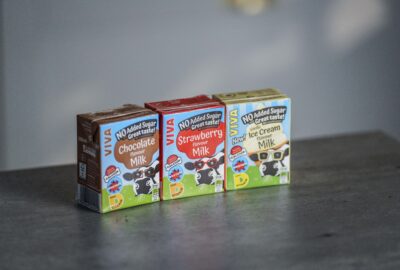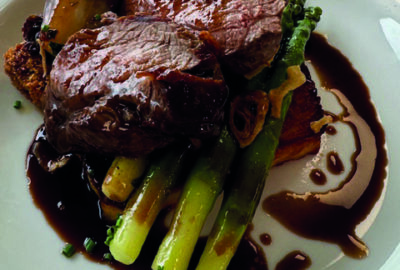With so many lives affected by cancer, many of us will already know that it is World Cancer Day on Sunday 4th February. What you may not know, is that one of the most difficult side effects for patients undergoing treatment is losing their sense of taste or smell.
Life Kitchen, a not-for-profit cookery school for people whose taste has been affected by cancer, cancer treatment or Covid, aims to address this problem by helping people enjoy food again.
Ryan Riley, chef and author, who co-founded the school with Kimberley Duke, also a chef, were inspired to launch Life Kitchen six years ago after both losing their mothers to cancer. Ryan says, “I was my mother’s carer from the ages of 18 to 20. I saw what she went through and how depressing it was for her to lose her sense of taste.”
Life Kitchen was formed after Ryan tweeted that he was planning a cookery class for people with cancer and whether anyone could help with the venue and food. “It went viral,” he says. “I ended up on BBC Radio 4’s Today programme and by the time I came off air Hugh Fearnley-Whittingstall and other influencers got in touch to see how they could help.”
Professor Barry Smith, founder of the Centre of Study of the Senses advises the Life Kitchen team on recipes and ingredients so people who have an altered sense of taste get enjoyment out of food.
Initially Life Kitchen ran classes, but now it holds them in collaboration with other organisations such as Northern Cancer Alliance, Cancer Network, the NHS, and Maggie’s cancer charity, of which Ryan is an ambassador.
Their new recipe book, Essential Flavour which has been developed by Ryan and Kimberley is used as a source of information during each class. Produced in collaboration with cancer charity The Big C, it is free to download and contains a collection of budget-friendly recipes. Dishes include miso lasagne, sweetcorn and sweet potato mash with spiced roasted cauliflower and tomato chutney, as well as miso banana crumble, “which I cooked on the ITV’s Lorraine show,” adds Ryan.
According to Ryan, there are three key ingredients which help to boost flavour – miso paste, spring onions and garam masala. “Miso paste is the most important,” he says. “Put it in everything as it is umami rich. Umami rich foods have a special talent. When they are on the tongue, they not only stimulate the umami receptor, but they also knock on the door of all the other receptors and ask them to work harder. When you have more umami rich food, you’re getting more sweet bitter tastes. That’s why umami is this golden elixir. We try and get it in every dish as it can really lift food to new levels. Spring onions give great texture as well as adding interest and flavour to whatever they accompany and garam masala warming spice blend adds depth and excitement to dishes with just a pinch added here and there.”
When developing recipes, the team draw focus on umami, aroma, texture and layering to build different flavours into a dish. “One way is to use various cooking techniques at different stages,” says Ryan. “You can blacken an aubergine on a flame before adding it to a sauce, building in smokiness and soft texture.”


